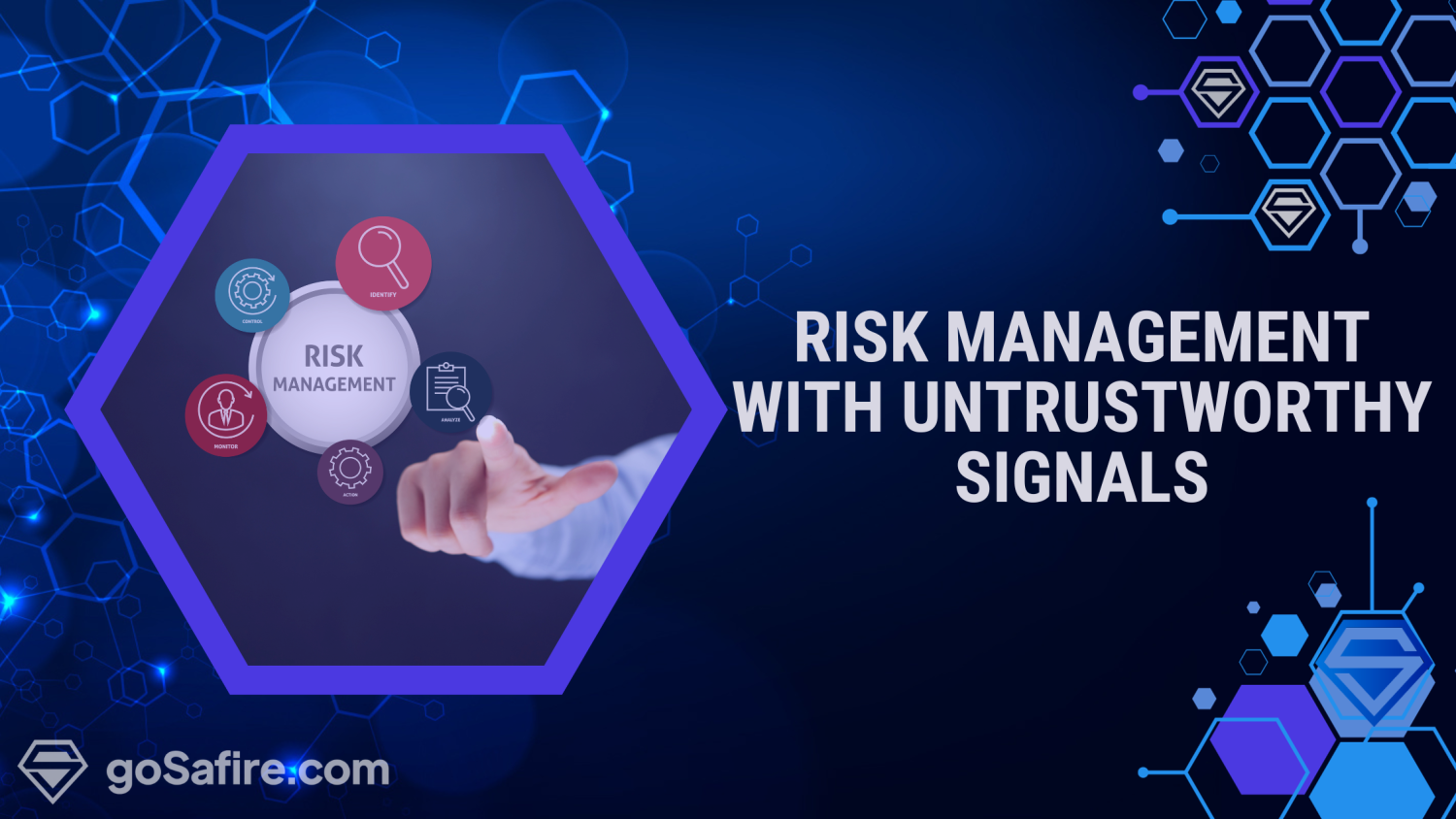
09. October, 2023
The Hidden Dangers: Risks Associated with Untrustworthy Trading Signals
Reliable information is crucial in the fast-paced world of cryptocurrency, forex trading, and blockchain technology. Many investors and traders rely on signals to make informed decisions, but there’s a hidden danger lurking beneath the surface: untrustworthy signals.
In this article, we’ll dive deep into the risks associated with untrustworthy signals and how you can effectively manage them. Whether you’re a seasoned trader or just starting out, understanding these risks is vital to your financial success
The Risks Associated with Untrustworthy Signals
Untrustworthy signals are like sirens luring sailors toward treacherous rocks. They promise quick gains and easy money but often lead to disastrous consequences.
Let’s explore some of the common risks associated with such signals:
False Hope and FOMO (Fear of Missing Out)
Untrustworthy signals often paint an alluring picture of potential profits, enticing traders with dreams of overnight success. These signals exploit the human tendency towards FOMO, making traders feel like they’re missing out on a golden opportunity if they don’t act immediately.
This emotional trigger can lead to impulsive decisions without the careful analysis that trading demands. Traders who succumb to this temptation may find themselves chasing after price movements driven by hype rather than sound fundamentals. As a result, they often enter positions at unfavorable price levels, setting themselves up for disappointment and losses.
Loss of Capital
Arguably the most severe risk associated with unreliable signals is the potential loss of capital. Trading based on inaccurate or unverified signals can lead to substantial financial setbacks.
These signals may mislead traders into buying assets at their peak prices, right before a market correction or crash, or selling assets at the bottom, missing out on potential rebounds. Such scenarios can rapidly deplete a trader’s account balance, leaving them with significant financial losses. The harsh reality is that recovering from such losses can be challenging and time-consuming.
Dependency
Over-reliance on trading signals can create a dangerous dependency that hampers a trader’s growth and development. When traders rely solely on signals, they become disconnected from the market’s real dynamics. Instead of building their analytical skills and understanding market trends, they become passive followers of signals.
This passivity can hinder their ability to adapt to changing market conditions, leaving them ill-equipped to make independent trading decisions. Consequently, traders dependent on signals may struggle to navigate the market effectively and miss valuable learning opportunities.
Legal and Ethical Issues
Not all signal providers operate ethically, and some may engage in questionable practices like front-running or insider trading. If you unknowingly trade on signals derived from such activities, you risk legal consequences and damage to your reputation.
Regulatory authorities closely monitor trading activities, and engaging in unethical practices can lead to severe penalties, including legal actions and fines. Additionally, trading based on signals associated with unethical behavior can harm your reputation within the trading community, making it difficult to establish trust with other traders and signal providers.
Overtrading
Unreliable signals can lead traders to overtrade, which is the act of making excessive and frequent trades based on the signals received. Overtrading often occurs when traders feel compelled to act on every signal, whether it’s from fear of missing out or the belief that more trades will lead to higher profits.
This behavior can quickly escalate, leading to a high number of positions with increased transaction costs, potential losses, and emotional exhaustion. Overtrading can erode both profits and capital, as each trade carries its own set of risks and costs.
Lack of Personalized Strategy
Relying solely on trading signals may cause traders to neglect to develop their personalized trading strategies. Instead of tailoring their approach to their risk tolerance, financial goals, and market preferences, traders become dependent on generic signals. This lack of a personalized strategy can hinder a trader’s ability to adapt to changing market conditions effectively.
Each trader’s financial situation and risk appetite are unique, and without a customized approach, they may find themselves following signals that don’t align with their individual needs, potentially leading to poor decision-making and suboptimal outcomes.
Risk Management Strategies
Now that we’ve addressed the pain points, let’s explore effective risk management strategies to protect your investments.
- Diversification: Spread your investments across various assets to minimize the impact of a single bad signal.
- Research and Due Diligence: Scrutinize signal providers thoroughly. Look for reviews, track records, and transparency in their methodology.
- Demo Trading: Practice on a demo account first to test the accuracy of signals without risking real capital.
- Set Stop-Loss Orders: Always use stop-loss orders to limit potential losses. Determine a level at which you’re comfortable exiting a trade.
- Risk-Reward Ratio: Calculate your risk-reward ratio before entering a trade. Ensure the potential reward justifies the risk you’re taking.
- Stay Informed: Keep yourself updated on market news and events that can impact your trades. Don’t rely solely on signals for decision-making.
- Use Trusted Sources: Subscribe to reputable signal services or communities with a proven track record of accuracy.
Conclusion
In conclusion, while trading signals can be a valuable tool when used judiciously, it’s crucial to recognize the multifaceted risks associated with untrustworthy signals. These risks encompass not only financial losses but also emotional and ethical challenges.
To protect your investments and ensure a successful trading journey, it’s essential to approach signals with caution, conduct thorough due diligence, and develop your analytical skills alongside signal usage. Remember that trading is a skill that demands continuous learning and a disciplined approach to risk management.


